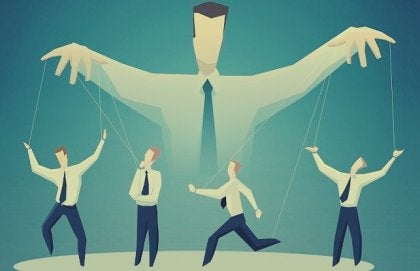The Panopticon Effect - Someone's Watching You
The Panopticon Effect by Foucault refers to a thesis of the French philosopher on power, control, and domination. In a strict sense, a panopticon is a building in which there’s a surveillance post you can watch the entire place from. This means that anyone on the watch can observe everything that goes on in that place. However, the watcher isn’t visible to others.
There’s an analogous concept in Foucault’s Panopticon Effect but from a more symbolic and abstract point of view. In his opinion, a panopticon mechanism that’s similar to the original operates in society. It basically corresponds to prison facilities.
However, the surveillance and control mechanisms in society are much more sophisticated and imperceptible. There are points of observation to watch everything people do but these go unnoticed or people just accept them without resistance. Thus, Foucault’s Panopticon Effect states that someone is always watching and controlling you.
“Every educational system is a political means of maintaining or of modifying the appropriation of discourse, with the knowledge and the powers it carries with it.”
-Michel Foucault-
The Panopticon Effect and disciplinary society
For Foucault, the evolution of history led humans to build a disciplinary society. That’s a society that moves around rules and obedience. The factor that makes it all possible is vigilance, which corresponds precisely to Foucault’s Panopticon.
A disciplinary society seeks to standardize people’s behavior. Thus, to achieve it, they implement a series of rewards and punishments. Think of it this way. Those who conform to the norm get rewards and those who deviate receive punishment. Thus, if all individuals follow the same train of thought, more or less, then it’s easier to exercise control over them. At the same time, the way to do so is by standardizing their minds.
An example of this is the state examinations that are conducted in many countries. They award scores. Based on that score, students either acquire or lose privileges. That measurement uniforms everyone and gives them a specific place within the system. It’s also a form of monitoring learning, without being an ideal way to measure knowledge.

Invisible surveillance
Foucault’s Panopticon Effect establishes that watchers are invisible to the people they watch. It’s an abstract and imprecise power applied through many agents. Take a company, for example. An employee might never personally meet the owner and, yet, the latter exercises control over them through all sorts of things. It might be through a direct boss or cameras. The employee is visible to the owner because the latter controls his time and movements, but the opposite isn’t true.
Precisely, Foucault emphasizes control over time and movements. People practice it at school, at work, and in various institutions and spaces. People must pass through certain spaces and not others. They must sit or stand. Also, they must regulate their time according to how various powers indicate it.
Perhaps many think that this is perfectly normal and that it’s appropriate for it to be so, for there to be social order. However, there isn’t such an obsession with control and discipline in all ages of history, nor in all societies.
The Panopticon Effect: self-control and self-censorship
Foucault advocated that time had come when physical punishment is no longer necessary to compel people to act as their masters wanted. Today’s society has normalized everything. It determined the good and the bad. In many cases, in a completely arbitrary manner. This ends up invading even the most intimate aspects of a person, including their sexuality.

The symbolic message emitted to all from the great institutions (school, state, media, etc.) is so powerful that the same people being controlled collaborate with the exercise of power. People “self-control” and “self-censor” and they fear sanction and exclusion.
Foucault failed to see the impressive developments in technology in terms of surveillance. This is because the subject exceeded the scope of his fears. In addition, computer science makes it possible to constantly monitor everyone. You know it and it makes you slightly afraid. Finally, nobody wants to be different from others, so they wear the selected uniform. Thus, the great powers consolidate more and more.
All cited sources were thoroughly reviewed by our team to ensure their quality, reliability, currency, and validity. The bibliography of this article was considered reliable and of academic or scientific accuracy.
Jay, M. (2007). ¿ Parresía visual? Foucault y la verdad de la mirada. Estudios visuales: Ensayo, teoría y crítica de la cultura visual y el arte contemporáneo, 4, 7-22.
This text is provided for informational purposes only and does not replace consultation with a professional. If in doubt, consult your specialist.








